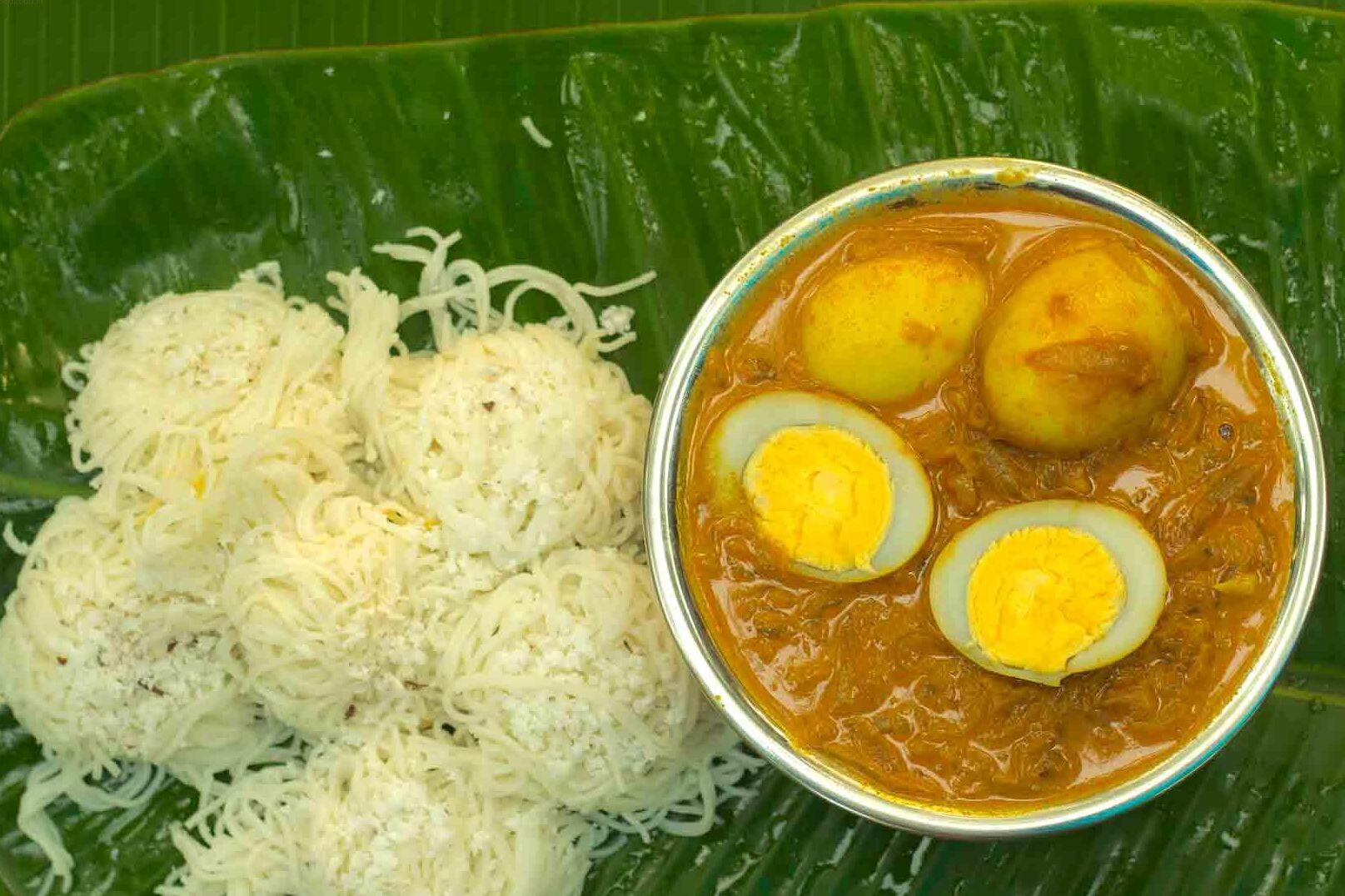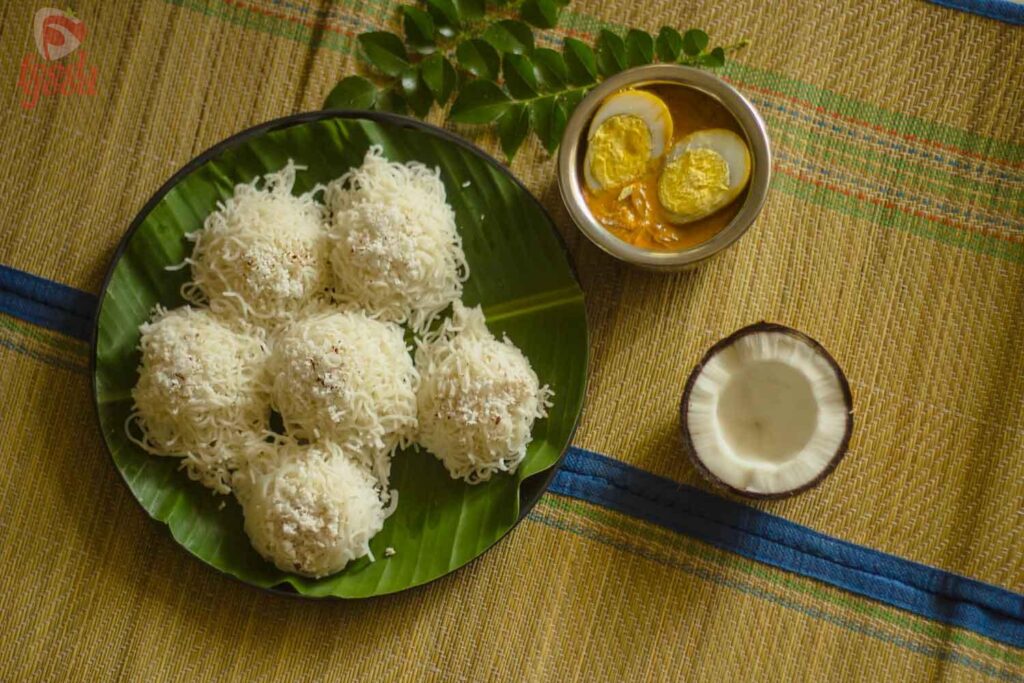Idiyappam, also known as Kerala Noolputtu or String Hoppers, is a traditional and beloved breakfast dish in Kerala. It’s a simple yet flavorful preparation that requires only a few ingredients and can be enjoyed even without any curry. Light, healthy, and easy to make — Idiyappam is one of my personal favourites.
I especially enjoy it with egg roast or egg stew — both of which pair wonderfully with its soft, delicate texture.
Ingredients & Preparation
The basic ingredients of Idiyappam are: Rice flour, Hot water, Salt and optionally; grated coconut and a touch of ghee for enhanced flavour and nutrition
To prepare, rice flour is kneaded into a soft dough using hot water and salt. This dough is then pressed through an Idiyappam mold to form thin, noodle-like threads. These are placed in small portions on banana leaves or idli plates and steamed until soft and fluffy.
They are then served hot, either plain or topped with coconut and ghee, and accompanied by a curry of your choice.
A Glimpse Into History
The origins of Idiyappam trace back to the Sangam period (as early as 300 BCE). Its simplicity, versatility, and ease of preparation helped it spread across South and Southeast Asia, where it adapted to local cultures and flavors while retaining its essential form.
Different Names in Different Countries
Though known by different names around the world, the foundation of steamed rice noodles remains the same:
| India (Tamil Nadu & Kerala) | Idiyappam / Nool Puttu |
| Sri Lanka | String Hoppers (Indiappa in Sinhala or Idiyappam in Tamil) |
| Malaysia & Singapore | Putu Mayam-served sweet with grated coconut and gula melaka |
| Indonesia | Putu Mayang-a dessert version served with palm sugar syrup |
| Myanmar (Burma) | Mont Di-a similar rice noodle dish, often in salads |
| Maldives | Maa Boakibaa-variations use similar steamed rice noodles |
Despite regional differences, the core remains the same: steamed rice flour pressed into threads.
Best Pairings with Idiyappam
Here are some classic and delicious curry pairings for Idiyappam:

- Kerala-style Egg Roast or Egg Curry
- Ishtu-A mild vegetable or egg stew made with coconut milk
- Nadan Chicken Curry-Spicy, traditional Kerala-style curry
- Mutton Kurma-Rich and aromatic, with coconut and spices
- Kadala Curry-Black chickpea curry, a popular vegetarian option
- Sweetened Coconut Milk-A light, sweet pairing made with jaggery and cardamom
Modern Avatars of Idiyappam
In today’s kitchens, Idiyappam has evolved into exciting fusion dishes:
- Stir-fried Idiyappam noodles with vegetables and sauces
- Sweet Idiyappam with banana, ghee, and sugar
- Stuffed Idiyappam rolls, filled with spicy masalas or even paneer, similar to spring rolls
Whether you prefer it traditional or with a twist, Idiyappam remains a symbol of simplicity and comfort in South Indian cuisine.
Kerala Idiyappam
Ingredients
Instructions
-
Boil some water in a pot.
-
In a mixing bowl, combine rice flour (Idiyappam podi) with salt and mix well.
-
Gradually add the boiled water to the flour and mix using a spatula to form a dough.
-
Set it aside for a few minutes to cool slightly, until it is safe to knead with your hands.
-
Once cooled enough, add a little ghee and knead well to make a soft, smooth dough.
-
Clean the Idiyappam press and fill it with the prepared dough.
-
Place some grated coconut at the base of each plate in the Idiyappam stand or steamer.
-
Press the dough onto each plate using the Idiyappam press to form thin noodles.
-
Repeat the process for all plates.
-
Steam the Idiyappams for about 10 minutes, or until fully cooked.
-
Serve hot with your favorite curry. The best combinations are Egg Roast, Kadala Curry, Beef Stew, or Vegetable Stew.


